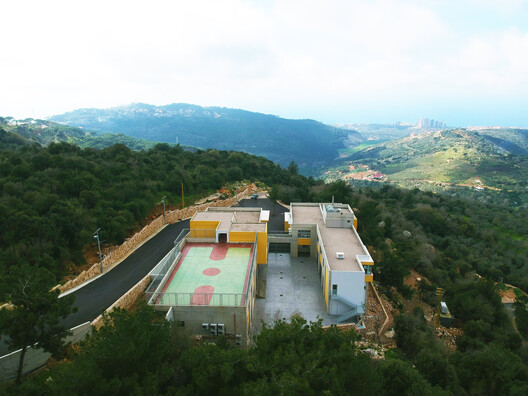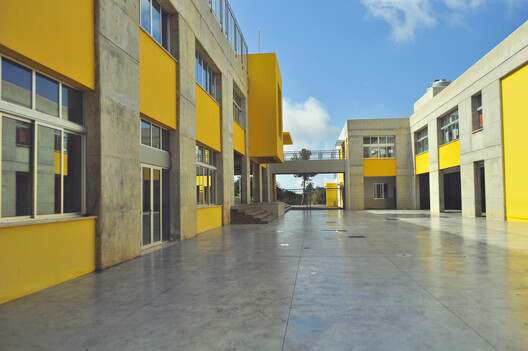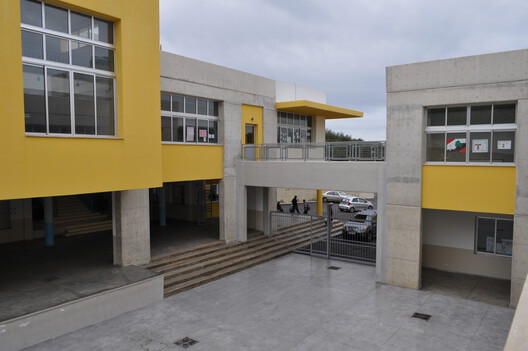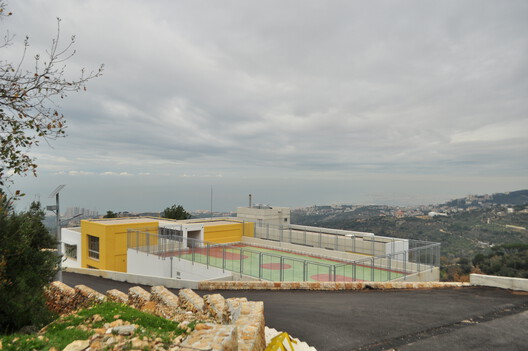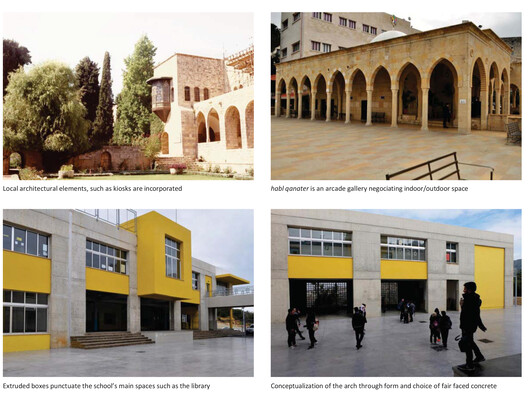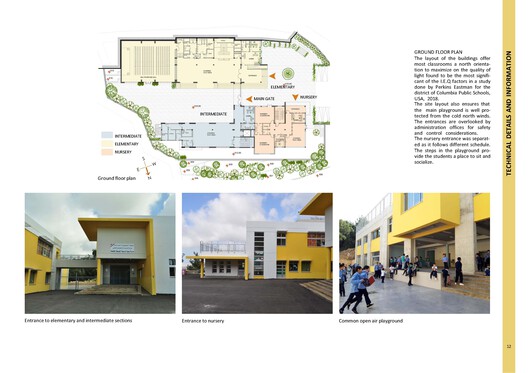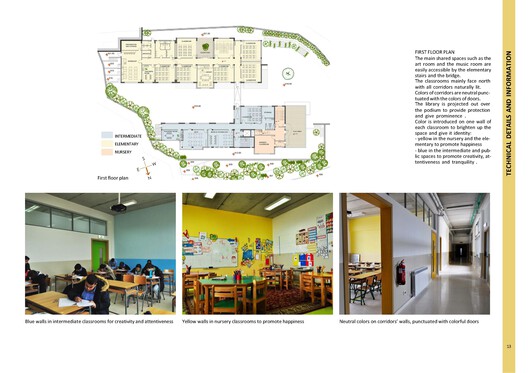
-
Architects: Almimariya
- Area: 3408 m²
- Year: 2020
-
Photographs:Hana Alamuddin
-
Lead Architects: Hana Alamuddin, Dina Mneimneh

Text description provided by the architects. The project is a public school consisting of a nursery, elementary, and intermediate sections, planned for a total of 360 students. The school was funded by the Municipality of the village of Abey from compensation paid by the government for a waste landfill created on municipal land in the 1990s and finally closed in 2015 after many local protests.











